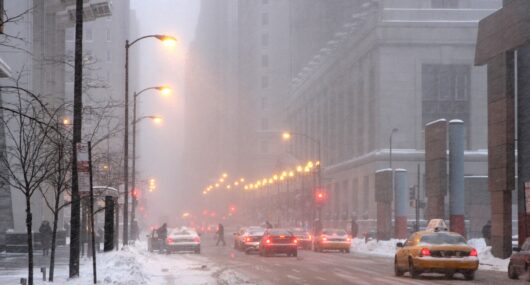
The Impact of Weather on HVAC/R Systems: Preparation and Recovery Strategies
Heating, ventilation, air conditioning, and refrigeration (HVAC/R) systems play an important role in maintaining comfortable indoor environments, whether in commercial, or industrial settings. However, the performance and efficiency of these systems are significantly influenced by external weather conditions. Extreme temperatures, humidity levels, storms, and other weather-related factors can pose challenges to HVAC/R systems, affecting their operation and lifespan. In this article, we will discuss the impact of weather on HVAC/R systems and explore effective strategies for preparation and recovery.
Understanding the Weather-System Relationship
HVAC/R systems are designed to regulate temperature, humidity, and air quality within a designated space. The external weather conditions directly affect the workload and performance of these systems. For instance, during scorching summers, air conditioners experience increased demand as they work tirelessly to cool indoor spaces. On the other hand, frigid winters place a heavy burden on heating systems to maintain comfortable temperatures. Additionally, fluctuating humidity levels and severe weather events like storms, hurricanes, or extreme heat waves can further stress HVAC/R systems.
Impact of Extreme Temperatures
Extreme temperatures, whether hot or cold, can significantly impact the efficiency and lifespan of HVAC/R systems. During heatwaves, air conditioning units may struggle to keep up with the demand for cooling, leading to potential breakdowns, reduced efficiency, and increased energy consumption. Similarly, in freezing temperatures, heating systems may experience strain, risking frozen pipes and damaged components. The strain on these systems during temperature extremes not only affects their immediate performance but can also contribute to long-term wear and tear.
Humidity Challenges
Humidity levels are crucial for indoor comfort and can impact the efficiency of HVAC/R systems. High humidity can strain air conditioning units, as they must work harder to remove moisture from the air while cooling. On the contrary, low humidity levels can lead to discomfort, dry skin, and potential issues with heating systems. Achieving the right balance is essential for optimal system performance and occupant comfort.
Storms and Severe Weather Events
Storms, hurricanes, and other severe weather events pose unique challenges to HVAC/R systems. Strong winds, heavy rainfall, and power outages can lead to system failures, flooding, and damage to external components. Proper preparation is crucial to mitigate potential risks and ensure a swift recovery after such events.
Preparation Strategies
Regular Maintenance: Conducting routine maintenance checks on HVAC/R systems is essential for identifying and addressing potential issues before they escalate. This includes inspecting filters, cleaning coils, checking refrigerant levels, and verifying the integrity of electrical components.
Weather-Responsive Programming: Utilize programmable thermostats and controllers that can adapt to changing weather conditions. These systems can adjust temperature settings based on external factors, optimizing energy efficiency, and reducing the strain on HVAC/R equipment.
Insulation and Weatherproofing: Proper insulation and weather-proofing of buildings can significantly reduce the workload on HVAC/R systems. Well-insulated structures retain heat or cool air more effectively, minimizing the need for constant operation of heating or cooling systems.
Emergency Power Backup: Install emergency power backup systems to ensure continuous operation during power outages caused by storms or other weather-related events. This is crucial to prevent system shutdowns and potential damage.
Recovery Strategies
Post-Event Inspection: After severe weather events, conduct thorough inspections of HVAC/R systems to assess any damage or malfunctions. Addressing issues promptly can prevent further complications and extend the lifespan of the equipment.
Repair and Replacement: Promptly repair or replace damaged components or systems. Waiting too long can exacerbate the damage and result in higher repair costs or even the need for a full replacement.
Coordination with Professionals: Engage with HVAC/R professionals to conduct comprehensive post-event assessments and repairs. Their expertise can identify hidden issues and ensure that the systems are restored to optimal functionality.
Insurance Coverage: Ensure that HVAC/R systems are covered by insurance policies that account for weather-related damages. This can provide financial assistance for repairs or replacements in the aftermath of severe weather events.
In conclusion, the impact of weather on HVAC/R systems underscores the importance of proactive preparation and swift recovery strategies. By understanding the relationship between external weather conditions and system performance, building owners and operators can implement effective measures to mitigate risks and enhance the resilience of these critical systems.
Regular maintenance, weather-responsive programming, and collaboration with professionals are key elements in safeguarding HVAC/R systems against the challenges posed by extreme temperatures, humidity fluctuations, and severe weather events. Through a combination of preparation and recovery efforts, it is possible to not only minimize the immediate impact of adverse weather but also prolong the lifespan and efficiency of HVAC/R systems in the long run.



